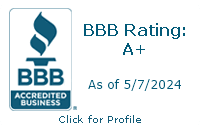Attention Agents: As if the “vacant land” frauds are not enough, the Scamming Community has developed a new way to steal money. It is basically a bogus contract deposit scam.
Here’s how it works:
The fraudster will reach out to you, the agent via e-mail, and advise they have entered into a contract of sale – the email will attach a copy of the contract, which in most cases, is allegedly executed by the seller. The fraudster will then ask for the Agency’s mailing address, or to confirm the Agency’s address for the purpose of forwarding a check representing the contract deposit. The “buyer” will also insist on seeing the deposit slip evidencing the Agency has deposited the check. Please note this is a no-no since that will also give them your account information. What is rather “clever” is that in many cases the property that is the subject of the contract is really for sale, although the contract provided is fraudulent and has nothing to do with the sale.
Within a few days, after the Agency receives the Check, the buyer will advise that the deal has been cancelled and instruct the Agency to return the deposit. Since in most cases the original deposit was from a foreign country, it can take over 10 days to 2 weeks for it to clear. That notwithstanding, the “buyer” will insist that the funds be wired immediately, which of course should be immediately rejected based on The Title Insurance Act which requires that only good funds (those funds that have cleared) be used as a basis for any disbursement. Inevitably, the original deposit check will bounce, or be proven to be fraudulent your account will now be short, if you were foolish enough to wire against uncollected funds.
The following are some of the telltale signs that you are being set up:
1. A request for title/escrow services from a party you have never worked with previously.
2. A form of contract that is different from the standard NJ realtors form or one drawn by an NJ attorney.
3. A buyer from a foreign county who is not using the services of a real estate agent or attorney.
4. A deposit check drawn on a foreign bank.
5. A request to provide copies of your deposit slip.
Please stay alert and feel free to reach out with any questions, and as always remember the old adage, “better safe then sorry.”


